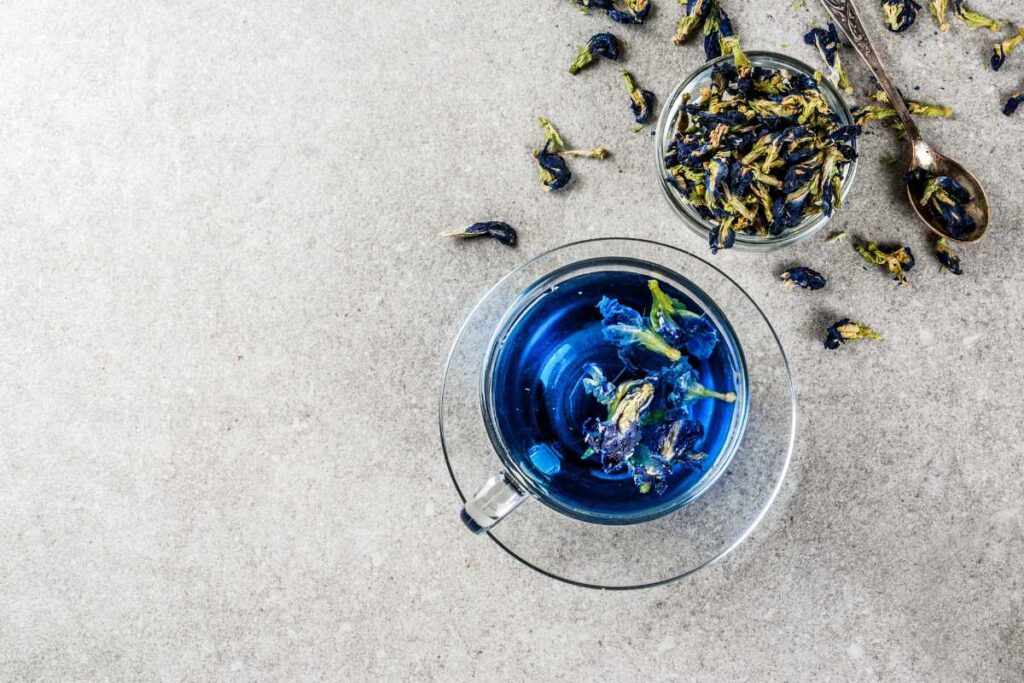Is Blue Tea Good for You?
Blue tea, also known as butterfly pea flower tea, is a herbal tea that has gained popularity in recent years. It is made from the flowers of the butterfly pea plant, which is native to Southeast Asia. The tea is renowned for its vibrant blue color and various health benefits. In this article, we will explore the benefits of blue tea, its potential side effects, and how to incorporate it into your diet.
What is Blue Tea?
Blue tea is a herbal tea made from the dried flowers of the butterfly pea plant. The tea is naturally caffeine-free and has a unique blue color that makes it visually appealing. Blue tea has a mild, earthy taste that is slightly sweet.
Nutritional Benefits of Blue Tea
Blue tea is rich in antioxidants, which help to protect the body from damage caused by harmful molecules called free radicals. The tea is also rich in flavonoids, which are plant-based compounds that have anti-inflammatory and anti-cancer properties. Additionally, blue tea contains vitamins A, C, and E, which are essential for maintaining healthy skin, hair, and eyes.
Health Benefits of Blue Tea
Blue tea has several health benefits that make it a popular choice among tea enthusiasts. Some of the benefits include:
1. Reduces Anxiety and Stress
Blue tea contains anxiolytic properties that help to reduce anxiety and stress. The tea contains a compound called apigenin, which has been shown to have a calming effect on the body.
2. Promotes Weight Loss
Blue tea has been found to promote weight loss by increasing metabolism and reducing appetite. The tea contains catechins, which are a type of flavonoid that help to boost metabolism and burn fat.
3. Improves Brain Function
Blue tea contains an amino acid called L-theanine, which has been found to improve cognitive function and increase mental clarity. The tea also helps to reduce mental fatigue and improve overall brain function.
4. Lowers Blood Pressure
Blue tea has been found to lower blood pressure and improve cardiovascular health. The tea contains nitric oxide, which helps to relax blood vessels and improve blood flow.
5. Helps to Manage Diabetes
Blue tea has been found to help manage diabetes by reducing blood sugar levels. The tea contains a compound called cyclotides, which help to regulate insulin secretion and reduce blood sugar levels.
Side Effects of Blue Tea
While blue tea is generally safe for most people to consume, it can cause some side effects in certain individuals. Some of the potential side effects include:
1. Stomach Upset
Blue tea can cause stomach upset in some individuals, especially if consumed in large quantities. The tea contains tannins, which can irritate the stomach lining and cause nausea and vomiting.
2. Allergic Reactions
Some individuals may be allergic to blue tea and experience allergic reactions such as hives, itching, and swelling.
3. Low Blood Pressure
Blue tea has been found to lower blood pressure, which can be problematic for individuals with low blood pressure. If you have low blood pressure, it is advisable to consult your doctor before consuming blue tea.
How to Incorporate Blue Tea into Your Diet
Blue tea can be consumed hot or cold and can be brewed in a variety of ways. Here are some tips on how to incorporate blue tea into your diet:
1. Blue Tea Latte
Brew a cup of blue tea and add some frothed milk and honey for a delicious and creamy blue tea latte.
2. Blue Tea Smoothie
Add a cup of brewed blue tea to your favorite smoothie recipe for an extra boost of antioxidants and a vibrant blue color.
Mix brewed blue tea with lemon juice, honey, and sparkling water for a refreshing and healthy blue tea lemonade.
4. Blue Tea Iced Tea
Brew a large pot of blue tea and let it cool. Add ice, a squeeze of lemon juice, and a few sprigs of fresh mint for a refreshing and healthy iced tea.
5. Blue Tea Cocktail
Mix brewed blue tea with your favorite liquor, such as vodka or gin, and add a splash of fruit juice for a delicious and colorful blue tea cocktail.
Is Blue Tea Good for You: Conclusion
Blue tea, also known as butterfly pea flower tea, is a healthy and flavorful beverage that offers a variety of health benefits. It is rich in antioxidants, flavonoids, and vitamins, and has been found to reduce anxiety and stress, promote weight loss, improve brain function, lower blood pressure, and help manage diabetes. While blue tea is generally safe for most people to consume, it can cause stomach upset and allergic reactions in some individuals. To incorporate blue tea into your diet, try making a blue tea latte, smoothie, lemonade, iced tea, or cocktail.
FAQs
- Is blue tea safe to drink every day?
Blue tea is generally safe to drink every day in moderation. However, it is advisable to consult your doctor if you have any medical conditions or are taking any medications.
- Can blue tea stain your teeth?
Blue tea has a natural blue color that can potentially stain your teeth if consumed in excess. To avoid staining, drink blue tea in moderation and rinse your mouth with water after drinking.
- How does blue tea help with weight loss?
Blue tea contains catechins, which help to boost metabolism and burn fat. It also helps to reduce appetite, which can lead to decreased calorie intake and weight loss.
- Does blue tea contain caffeine?
No, blue tea is naturally caffeine-free, making it a great option for those who are sensitive to caffeine or looking for a caffeine-free alternative to traditional tea or coffee.
Blue tea can be found at most health food stores and online retailers. It is important to choose a reputable brand that uses high-quality, organic butterfly pea flowers.





